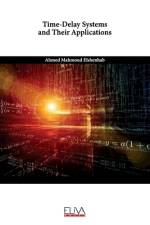av Ahmed Mahmoud Elshenhab
689,-
Time-delay systems occupy a place of central importance in all areas of science. Time-delays are often related to Physico-chemical processes, electric networks, hydraulic networks, heredity in population growth, the economy, and other related industries. Such time-delay systems can be represented by delay differential equations, delay discrete equations, or delay fractional differential equations. Some real-world problems can be modeled in a more accurate way by including time-delays. Such systems are often used to model phenomena in scientific and technological problems. These models are used in computer engineering, viscoelastic systems, diffusion processes, signal analysis, biology, forced oscillations, control theory, disease modeling, finance, and population dynamics. Recently, several attempts have been made to find an analytical solution for time-delay systems under different conditions, which leads to results on stability analysis, control problems, observability, and iterative learning control for linear or nonlinear continuous delay systems, discrete delay systems, impulsive delay systems or fractional order delay systems. The first objective of this work is to obtain the exact solutions of linear or nonlinear continuous delay systems, discrete delay systems, and fractional order delay systems. After that, as an application, the representation of solutions of these systems is used to derive the finite time stability, Hyers-Ulam stability, and controllability results. To prove the effectiveness of the proposed approach, the obtained results will be illustrated by applications, and compared with the outcomes in the existing literature.




























